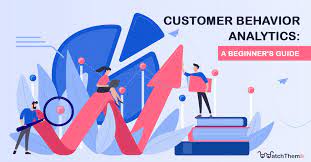My Journey Through Silence to Data
From quiet observer to data storyteller - A journey of transformation
The Beginning: Born into Humility
I was born in 2001 into a humble family, growing up in a society that often dismissed my opinions and made me feel like my voice didn't matter. This environment gradually shaped me into extreme introversion, self-centeredness, and low self-esteem. Making genuine friends felt impossible, so I created imaginary companions who wouldn't judge me. Books became my sanctuary, my true friends in a world that didn't understand silence.
The Mind's Cinema: Endless Replays
My mind became a theater constantly replaying every interaction, every moment, like an endless movie. But these replays weren't entertaining - they were sources of frustration and self-doubt. Each failure, each awkward moment, played on loop, breaking me down piece by piece. At puberty, my teachers grew concerned about my profound silence, sending me to local counselors and motivators, but my operating system seemed to shut down in public spaces.
Finding Solace in Silence
In my final year of primary school, I found my tribe - people who, like me, drew energy from solitude rather than noise. For the first time, my silence became a source of pride rather than shame. I became unique in the entire school - known not for being loud, but for my profound quietness. Teachers respected me, students greeted me with honor, and even the noisiest touts in matatus seemed to absorb my calm energy. I had become a noiseless celebrity.
The Boundary of Labels
High school brought new challenges as I learned about introverts and extroverts from peers. These labels drew boundaries I hadn't known existed. Every gaze started to mean something else - "They think I hate them," "They don't like me," "She wants more talkative people." My pride turned to paranoia, and I began what I call mental self-torture, replaying scenarios, people, and moments thousands of times in my mind.
Finding Control in Data
I asked myself: "What am I good at?" The answer was clear - I excelled at overthinking and analysis. Data gave me a sense of control I desperately needed. Since childhood, my life had depended on data - how someone treated me determined whether I'd say hello the next morning, how someone looked at me decided if they were friend or enemy. Spontaneity felt impossible; I needed proof from data. This realization sparked my passion for data analysis.
From Self-Analysis to Business Intelligence
I immersed myself in YouTube, studying patterns for survival. As I grew older, more realities revealed themselves, creating more insecurities and mental loops. I learned from renowned mentors online - Vanessa Edwards, Robert Greene, Brian Tracy - hoping one day for official therapy. I devoured books from "Atomic Habits" to "How to Win Friends and Influence People," all to outsmart my own operating system.
Amplifying My Purpose
At university, studying Business Information Technology, I found my calling. The degree opened me to human psychology, computer systems, data, and analysis - it amplified my natural persona. When AI emerged, I had both data and sources, transforming me into a full data analyst. Today, I don't analyze smiles or walking styles anymore - I analyze three-year sales trends, marketing patterns, and consumer behavior to help businesses make informed decisions.
Facing Life by the Horn
While social challenges still exist, I now face them head-on using data-driven decisions. Yesterday, during a market visit, I felt the familiar urge to hide from the stage and multitude. But instead, I walked forward, knowing from my data that these fears are my brain's false alarms. This is just 1/1,000,000th of what I carry. I have much to share and even more to learn, which is why you'll find me daily on my computer, exploring best practices.
Thanks to the internet, I learned that one way to deal with social anxiety is to talk it out - and that's exactly what I'm doing now, turning my greatest challenge into my greatest strength through the power of data.
"I don't just analyze data—I understand the human stories behind every number. Because I've spent a lifetime learning to read between the lines, to see patterns where others see chaos, and to find truth in the silence between data points."










